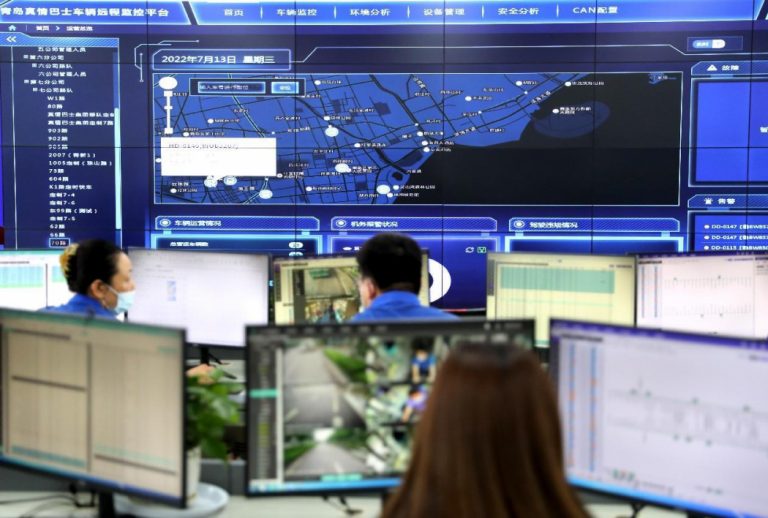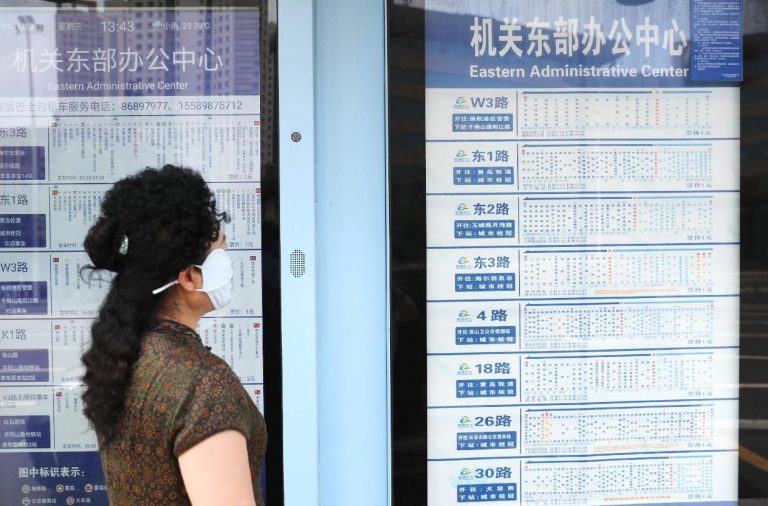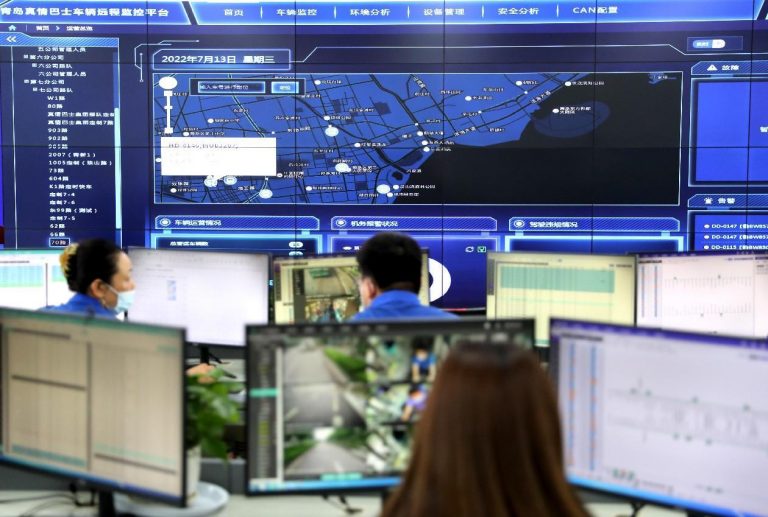
By Shi Ling, People’s Daily
At 6:30 am, bus driver Xiao Xinhua in Xiamen, southeast China’s Fujian province, drove a No.37 bus to the train station. After arriving at the station, the information on the route display of his bus was changed to M9 from No. 37, and the man then headed for another destination.
This flexible bus dispatching model adopted by Xiamen enables a bus to run on different routes. Based on the extensive data analysis of passenger flow, the system effectively integrates the resources of drivers and vehicles and optimizes capacity distribution, thus diverting buses to places in need.
From carriages to steam locomotives and intelligent vehicles, the transport industry has gone through a big transition from an era of transport capacity to a time of algorithms, which will significantly change public transportation and travel services.

Optimizing transport capacity with algorithms is not only about making vehicles intelligent. Cameras and street lidars can collect data on pedestrians, cars, road markings, stations, roads, and parking spaces and then send them to a “city brain” that manages urban traffic. The “city brain” would then generate graded plans to optimize public transport in a targeted manner.
Intelligent transport gives better experiences to passengers.
In Wuhan, central China’s Hubei province, many buses are equipped with panoramic camera systems that help reduce the driver’s blind spots and thus make bus trips safer.
In Changsha, central China’s Hunan province, traffic lights at crossroads would turn green priorly as appropriate when intelligent buses pass through, which makes bus trips faster.
In Haikou, south China’s Hainan province, many passengers have found lost items on buses thanks to a positioning system.
Digital technologies have bolstered public transport services. Being economical, energy-efficient, eco-friendly, convenient, and comfortable public transport will become a travel choice for more people.
Intelligent public transport features higher efficiency and better experience and offers additional services through smart bus stations and other facilities to meet passengers’ diverse demands.
For instance, electronic bus stop displays offer various services, including weather information, bus routes, live bus arrival times, Wi-Fi connection, and free mobile phone charging. In addition, they also come with surveillance cameras and SOS alert devices to better ensure passengers’ safety. Such displays are especially friendly to particular groups, such as seniors.

The advancing digital technologies and new application scenarios will endow public transport with a bigger space for improvement.
Recently, a demonstration project of an intelligent public transport system developed by Xiamen passed acceptance inspection by the Ministry of Transport. With this system, buses equipped with BRT (bus rapid transit) can automatically stop at each station without human operation. When a bus is not at a safe distance from the car in front, two vehicles will activate a collision prevention system.
Besides, an intelligent guiding system can recommend optimal bus power plans to make trips smoother. Digital technologies are making public transport more convenient and safer.
Public transport concerns the efficiency of social functioning and the life quality of every individual. Digital technologies can optimize urban transport capacity, improve transport efficiency, and make transport smoother, thus meeting people’s expectations for a better life.










